
Annapolis is the capital of the U.S. state of Maryland. It is the county seat of Anne Arundel County and its only incorporated city. Situated on the Chesapeake Bay at the mouth of the Severn River, 25 miles (40 km) south of Baltimore and about 30 miles (50 km) east of Washington, D.C., Annapolis forms part of the Baltimore–Washington metropolitan area. The 2020 census recorded its population as 40,812, an increase of 6.3% since 2010.
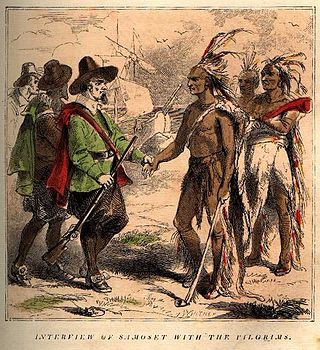
The colonial history of the United States covers the period of European colonization of North America from the early 16th century until the incorporation of the Thirteen Colonies into the United States in 1776 during the Revolutionary War. In the late 16th century, England, France, Spain, and the Dutch Republic launched major colonization expeditions in North America. The death rate was very high among early immigrants, and some early attempts disappeared altogether, such as the English Lost Colony of Roanoke. Nevertheless, successful colonies were established within several decades.

The Province of Maryland was an English and later British colony in North America from 1634 until 1776, when the province was one of the Thirteen Colonies that joined in supporting the American Revolution against Great Britain. In 1781, Maryland was the 13th signatory to the Articles of Confederation. The province's first settlement and capital was in St. Mary's City, located at the southern end of St. Mary's County, a peninsula in the Chesapeake Bay bordered by four tidal rivers.
The music of Annapolis, Maryland, played a major role in the music history of the United States during the colonial era and has since produced a number of notable musical institutions and groups.
William Hamilton (1669–1732) was a Scottish Presbyterian theologian and minister of the Church of Scotland. He was professor of divinity at the University of Edinburgh from 1709 to 1732 and also principal of the university from 1730 to 1732.
Sarah Osborne (also variously spelled Osbourne, Osburne, or Osborn; née Warren, formerly Prince, was a colonist in the Massachusetts Bay colony and one of the first women to be accused of witchcraft in the Salem witch trials of 1692. Sarah Osborn was suggested to be a witch by Sarah Good. Sarah Good said she had been tormenting the girls.
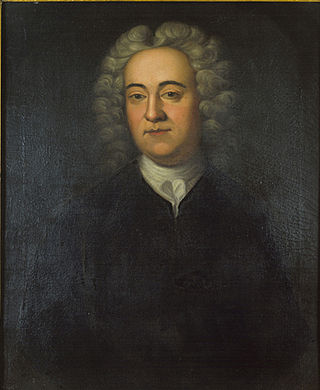
Daniel Dulany the Elder (1685–1753) was a lawyer and land-developer in colonial Maryland, who held a number of colonial offices. In 1722 Dulany wrote a pamphlet entitled The Right of the Inhabitants of Maryland, to the Benefit of the English Laws, asserting the rights of Marylanders over the Proprietary Government.
During the British colonization of North America, the Thirteen Colonies provided England with an outlet for surplus population as well as a new market. The colonies exported naval stores, fur, lumber and tobacco to Britain, and food for the British sugar plantations in the Caribbean. The culture of the Southern and Chesapeake Colonies was different from that of the Northern and Middle Colonies and from that of their common origin in the Kingdom of Great Britain.
George Hume Steuart, (1700–1784) was a Scottish physician, tobacco planter, and Loyalist politician in colonial Maryland. Born in Perthshire, Steuart emigrated to Maryland in around 1721, where he benefited from proprietarial patronage and was appointed to a number of colonial offices, eventually becoming a wealthy landowner with estates in both Maryland and Scotland, and serving two terms as mayor of Annapolis. However, he was forced by the outbreak of the American Revolution to decide whether to remain loyal to the Crown or to throw in his lot with the American rebels. In 1775 Steuart sailed to Scotland, deciding at age 75 that "he could not turn rebel in his old age". He remained there until his death in 1784.
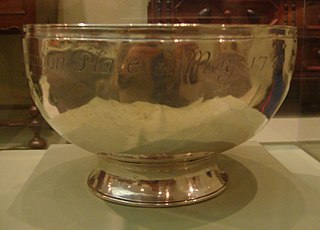
The Annapolis Subscription Plate is the name given both to the first recorded formal horse race in colonial Maryland and to the silver trophy awarded to the winner of the race. It is the second oldest known horse racing trophy in America.

Walter Dulany Addison was an Episcopal clergyman who served as Chaplain of the United States Senate (1810–1811).
Bennet Allen was an English priest and miscellaneous writer.

Walter Dulany was a politician in Colonial Maryland, who was mayor of Annapolis from 1766 to 1767. His family house and land at Windmill Point later became the location for the United States Naval Academy.

William Parks was an 18th-century printer and journalist in England and Colonial America. He was the first printer in Maryland authorized as the official printer for the colonial government. He published the first newspaper in the Southern American colonies, the Maryland Gazette. He later became authorized as the official printer for the colonial government of Virginia. Parks was also the publisher and printer of the first official collection of the authentic 1733 set of Virginia's laws, and the first colonial publisher and proprietor of The Virginia Gazette newspaper. During his lifetime Parks established four new newspapers in the colonies. He also worked with Benjamin Franklin on several projects related to printing, most notably, the establishment of a paper mill in Virginia, the first such mill south of Pennsylvania.
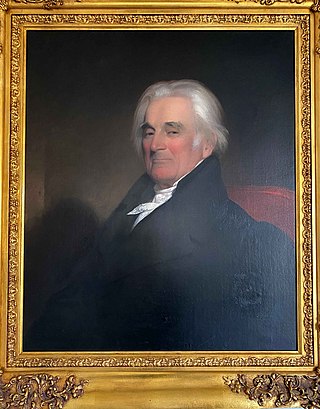
William Steuart was a wealthy planter in colonial Maryland. He inherited the estate of Dodon in Anne Arundel County, Maryland, from his father, planter and politician George H. Steuart.

Considerations on the Propriety of Imposing Taxes in the British Colonies was a pamphlet written by Daniel Dulany the Younger in opposition to the UK Stamp Act of 1765 effectively imposing taxes on the colonies. In the pamphlet, published in Annapolis in 1765, Dulany argued that the colonies could not be taxed by Parliament, as they were not represented in it. The pamphlet sold widely and was influential in the development of colonial opinion in the early stages of the American Revolution.
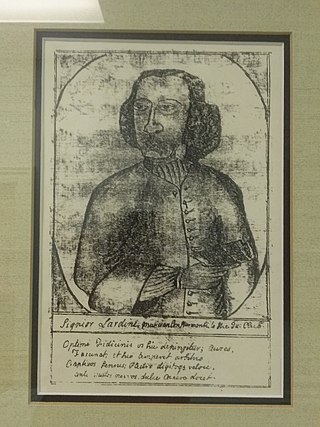
Thomas Bacon was an Episcopal priest, musician, poet, publisher and author. Considered the most learned man in Maryland of his day, Bacon is still known as the first compiler of Maryland statutes.

Blueskin was a gray horse ridden by George Washington. He was one of Washington's two primary mounts during the American Revolutionary War. The horse was a half-Arabian, sired by the stallion "Ranger", also known as "Lindsay's Arabian", said to have been obtained from the Sultan of Morocco. Blueskin was a gift to Washington from Colonel Benjamin Tasker Dulany of Maryland. Dulany married Elizabeth French, a ward of Washington's, who gave her away at her wedding to Dulany on February 10, 1773.

"The Sot-Weed Factor: Or, a Voyage to Maryland. A Satyr" is a satirical poem written by British-American poet Ebenezer Cooke, and first published in London in 1708.













